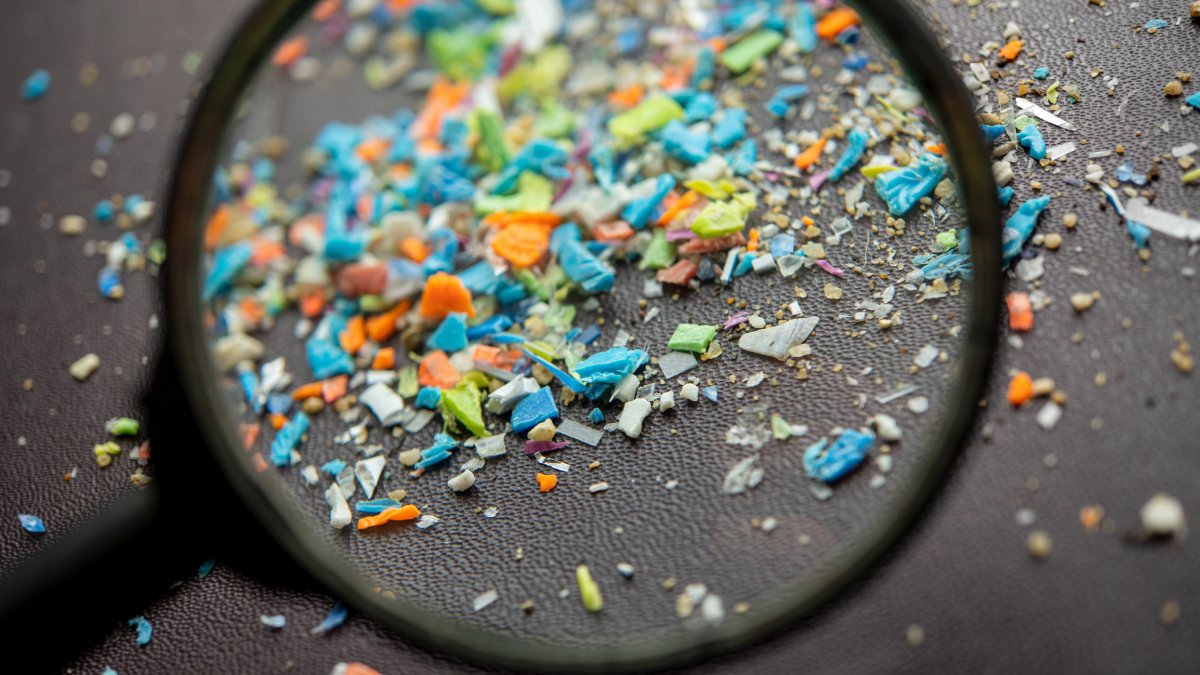Microplastics are everywhere—in our food, our water and even the air. In fact, by some estimates we ingest about a credit card's worth of plastic every single week. But what actually happens when these tiny plastic particles get inside our bodies?
Microplastics are any plastics smaller than 5 millimeters (0.2 inches) long. They are often found in industrial waste and beauty products but can also form larger pieces of plastic breakdown over time. Many of these plastic pieces end up in our oceans, which are estimated to contain somewhere between 50 trillion and 75 trillion pieces of micro- and larger plastics, according to UNESCO's Ocean Literacy Portal.
"They appear to be everywhere," said Eliseo Castillo, an associate professor in the Division of Gastroenterology and Hepatology at the University of New Mexico, in a statement.

The widespread nature of these plastic particles is particularly concerning as the chemicals they contain have been shown to disrupt our body's natural release of hormones, potentially increasing our risk of reproductive disorders and certain cancers. They can also carry toxins on their surface, like heavy metals.
Previous research has shown that microplastics might affect the balance of healthy bacteria in our guts. But according to research by Castillo and his team, these particles don't just stay put in our digestive systems.
In a study published in the journal Environmental Health Perspectives, Castillo and his colleagues exposed a group of mice to microplastics in their drinking water, equivalent to the concentrations we are exposed to on a daily basis.
After four weeks, the team found that these microplastics had extended far beyond the mice's guts, infiltrating tissues in their livers, kidneys and even their brains.
"We could detect microplastics in certain tissues after the exposure," Castillo said. "That tells us it can cross the intestinal barrier and infiltrate into other tissues."
There was also evidence that the microplastics had altered the metabolism of these affected tissues.
What's particularly concerning here is that these effects were seen after just four weeks of exposure. "Now, think about how that equates to humans, if we're exposed from birth to old age," Castillo said.
The team next hopes to explore whether diet might affect this spread of microplastics throughout our bodies.
"Everyone's diet is different," Castillo said. "So what we're going to do is give these laboratory animals a high-cholesterol/high-fat diet, or high-fiber diet, and they will be either exposed or not exposed to microplastics. The goal is to try to understand if diet affects the uptake of microplastics into our body."
Ultimately, the team hopes to uncover a holistic picture of how microplastics affect the human body.
"At the end of the day, the research we are trying to do aims to find out how this is impacting gut health," Castillo said. "Research continues to show the importance of gut health. If you don't have a healthy gut, it affects the brain, it affects the liver and so many other tissues. So even imagining that the microplastics are doing something in the gut, that chronic exposure could lead to systemic effects."
Is there a health problem that's worrying you? Let us know via health@newsweek.com. We can ask experts for advice, and your story could be featured in Newsweek.
Uncommon Knowledge
Newsweek is committed to challenging conventional wisdom and finding connections in the search for common ground.
Newsweek is committed to challenging conventional wisdom and finding connections in the search for common ground.
About the writer
Pandora Dewan is a Senior Science Reporter at Newsweek based in London, UK. Her focus is reporting on science, health ... Read more
To read how Newsweek uses AI as a newsroom tool, Click here.








